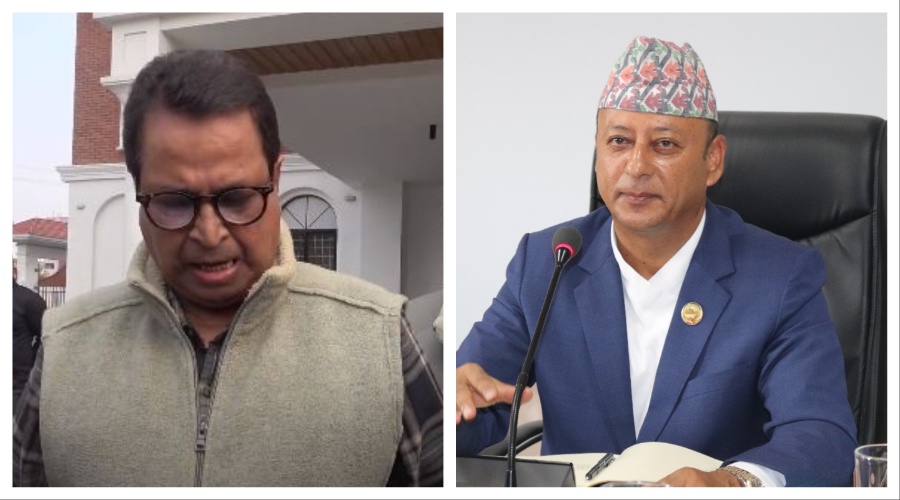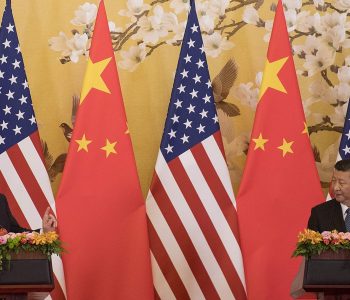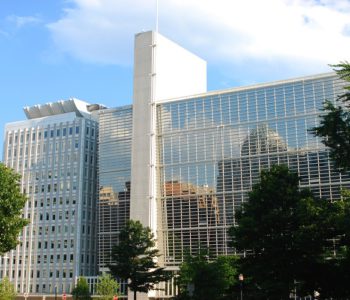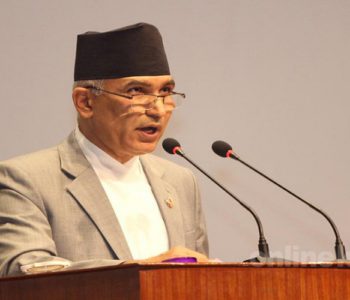Hydropower Scam Erupts: Minister Khadka faces backlash over controversial hydropower deals favoring Binod Chaudhary

KATHMANDU: The controversy surrounding the financial partnership process for the Mugu Karnali (1,902 MW) and Kimathanka Arun (454 MW) hydropower projects has exposed serious flaws in governance, with Minister for Energy Deepak Khadka and controversial businessman and MP Binod Chaudhary at the center of public criticism. The rushed and questionable procedures employed by the Vidhyut Utpadan Company Limited (VUCL) to favor select individuals have raised concerns about corruption, favoritism, and the misuse of public resources.
Binod Chaudhary, a controversial businessman, has faced allegations of exploiting his influence for personal gain. The process for the Mugu Karnali hydropower project saw only one proposal submitted, that of CG Energo, a company owned by Chaudhary. This glaring lack of competition has fueled suspicions that the procedures were deliberately manipulated to ensure his company secured the lucrative project unchallenged. Such tactics not only undermine public trust but also set a dangerous precedent, where powerful individuals manipulate the system to their advantage, sidelining national interests.
Minister Khadka’s approval of the hastily drafted guidelines, which were created overnight, demonstrates a blatant disregard for transparency and due process. The guidelines excluded oversight from key regulatory bodies like the Investment Board Nepal (IBN) and the Electricity Regulatory Commission, raising questions about the motives behind this decision. Critics argue that these actions were designed to prioritize private gains over public welfare, with Chaudhary’s CG Energo appearing to be the primary beneficiary.
The Kimathanka Arun project, which received only five proposals, also highlights the lack of genuine competition. Among the bidders were companies with political connections, further pointing to a culture of collusion between political leaders and business tycoons. Chaudhary’s involvement in such a controversial process has drawn widespread criticism, with many accusing him of exploiting his political position to gain control over major hydropower projects.
The estimated costs for the Mugu Karnali and Kimathanka Arun projects—NPR 460 billion and NPR 93.8 billion respectively—represent significant investments in Nepal’s energy sector. However, the absence of robust financial criteria in the bidding process has raised concerns about the potential misuse of these funds. Critics argue that allowing companies like Chaudhary’s to dominate such projects without clear accountability measures risks undermining the country’s energy sovereignty.
Chaudhary’s history of leveraging his political connections for business advantages has long been a subject of public debate. His involvement in the Mugu Karnali project has further solidified his reputation as a controversial figure who prioritizes personal gains over national development. The lack of provisions to ensure maximum state revenue, such as competitive bidding on royalties, free energy shares, and electricity rates, has left many questioning whether the government is truly committed to safeguarding the nation’s interests.
Minister Khadka’s role in facilitating this flawed process has also drawn criticism from within his own party, the Nepali Congress. Senior leaders have raised concerns about the minister’s actions, with some accusing him of prioritizing personal and political interests over public welfare. The growing dissatisfaction within the party reflects the broader discontent among citizens, who see this scandal as yet another example of how powerful individuals and groups manipulate the system for their benefit.
The suspension of the controversial process following Prime Minister KP Sharma Oli’s directive offers a glimmer of hope for those demanding accountability. However, this alone is not enough to address the systemic issues that have allowed such practices to persist. The government must take concrete steps to ensure transparency and fairness in future projects, including the implementation of stringent oversight mechanisms and the involvement of independent regulatory bodies.
Nepal’s energy sector holds immense potential to drive economic growth and development. However, the continued involvement of controversial figures like Binod Chaudhary in major projects threatens to undermine this potential. Chaudhary’s influence, combined with Minister Khadka’s questionable leadership, has created an environment where personal gains are prioritized over national interests. This scandal serves as a stark reminder of the urgent need for reforms to ensure that Nepal’s resources are managed in a manner that benefits the entire nation, not just a select few.
Public trust in the government and its institutions has been severely eroded by this controversy. The actions of Minister Khadka and Binod Chaudhary have highlighted the deep-rooted issues of corruption and favoritism that continue to plague Nepal’s political and business landscape. As the country looks to the future, it is imperative that its leaders prioritize transparency, accountability, and the public good over personal and political interests.











Facebook Comment